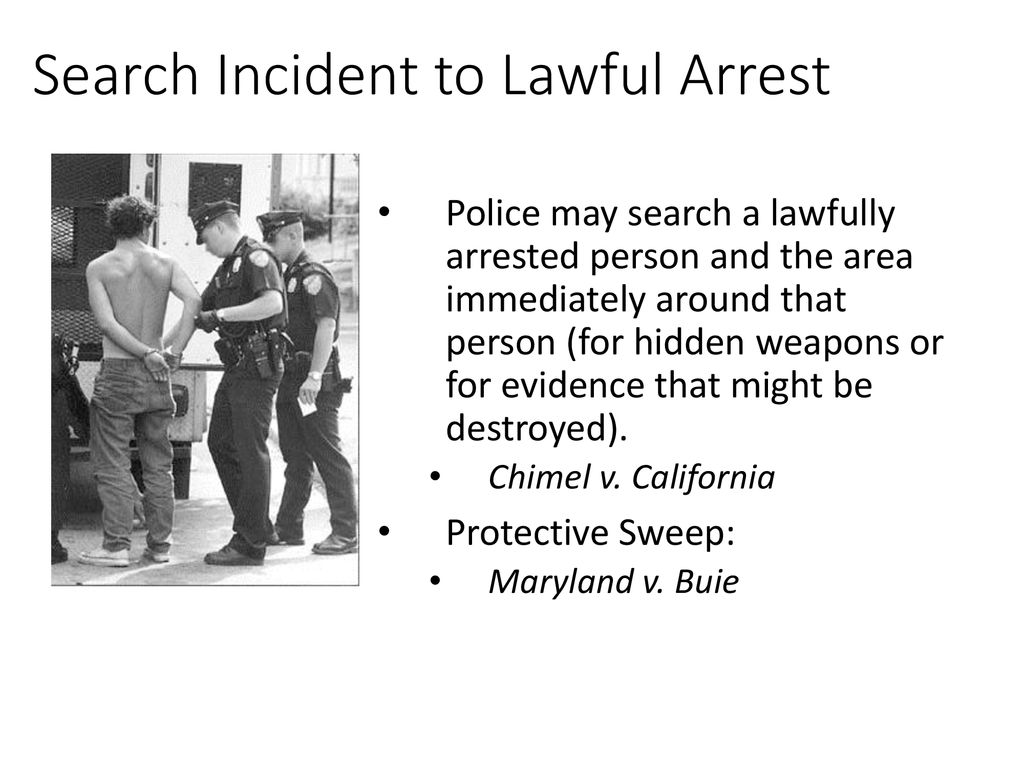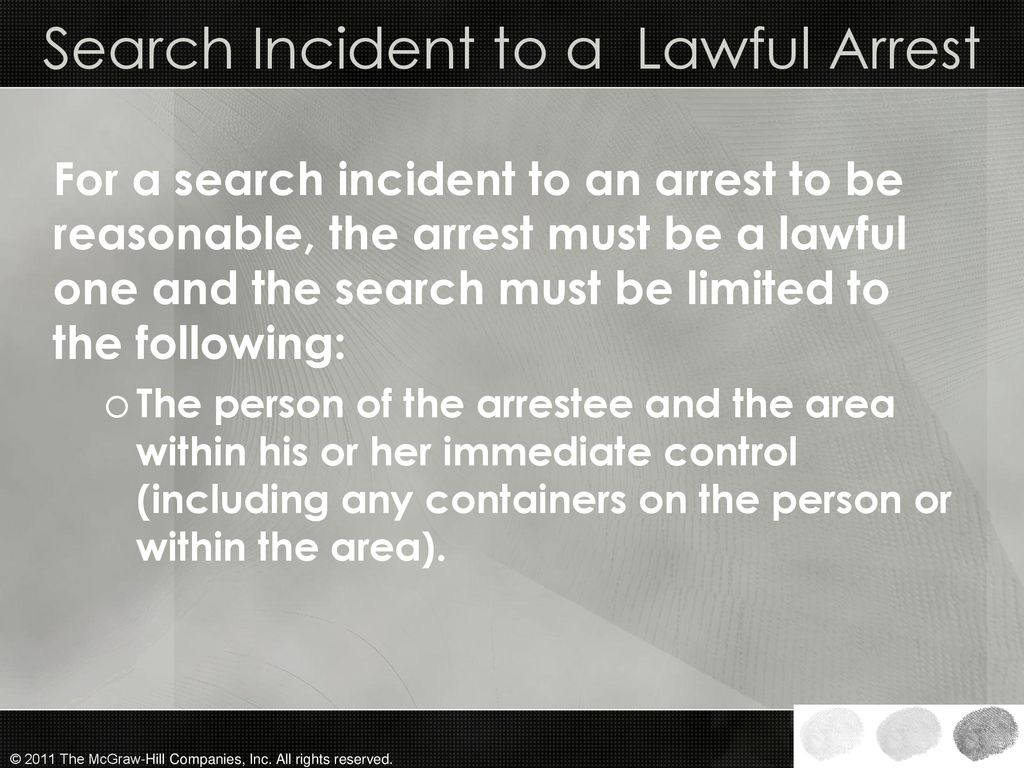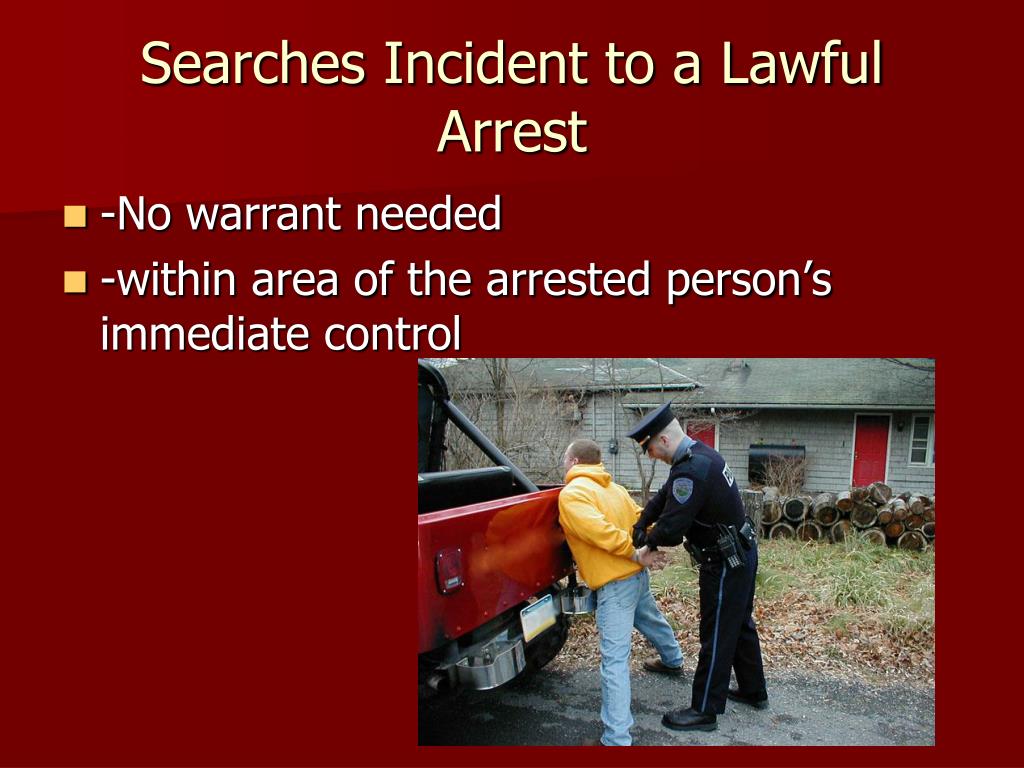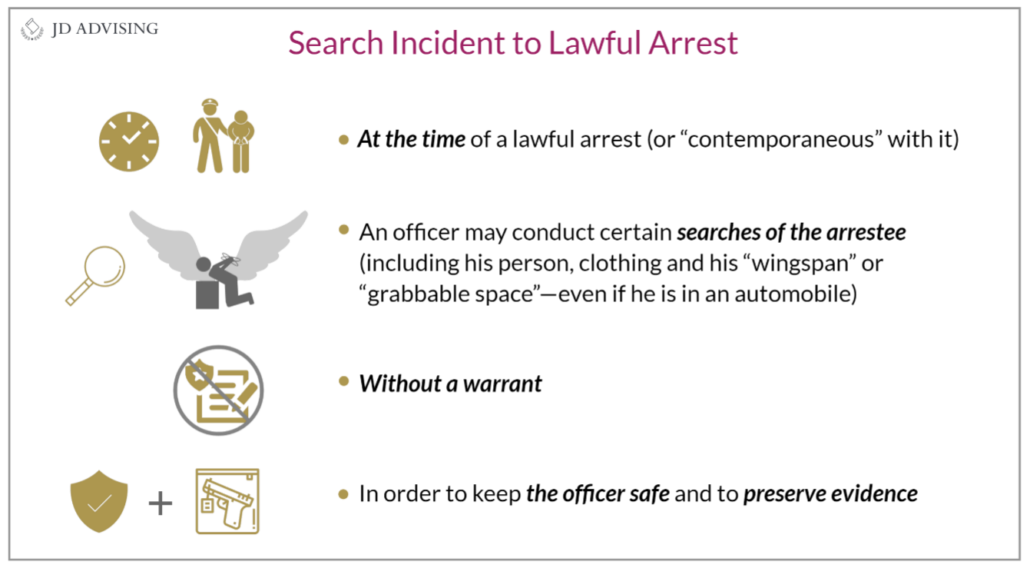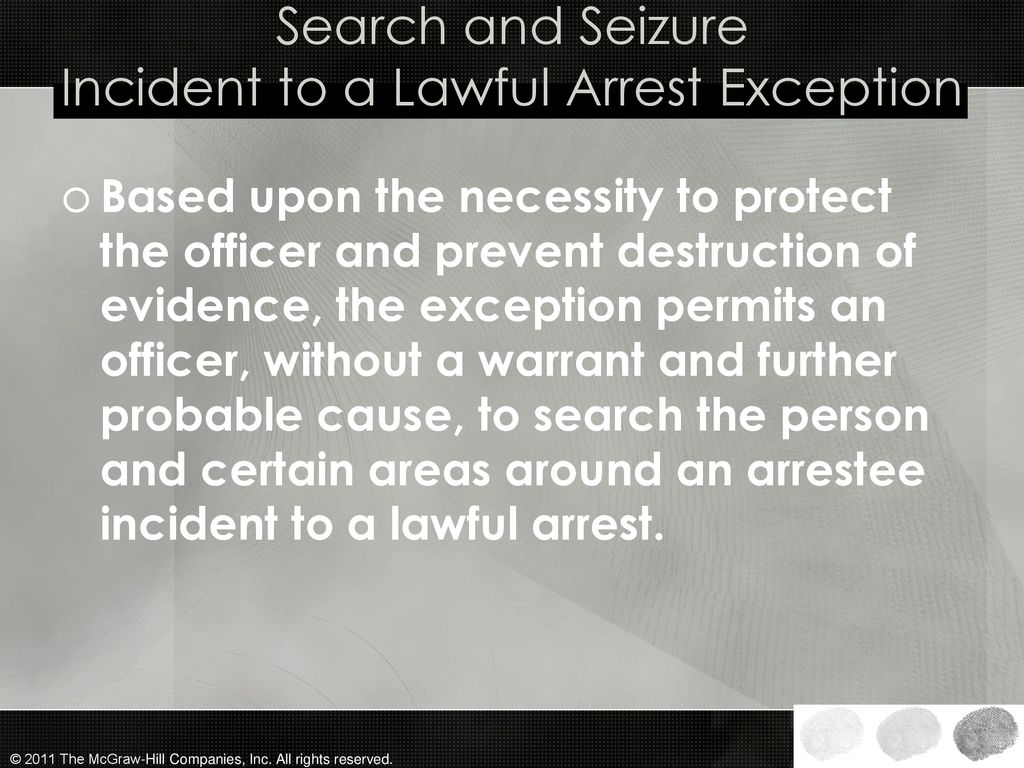Search Incident To Lawful Arrest - In the case of a lawful custodial arrest, a full search of the person is not only an exception to the warrant requirement of the fourth. It occurs roughly contemporaneously with the arrest, that is, at the same time or shortly after the. When an arrest is made, it is reasonable for the arresting officer to search the person arrested in order to remove any weapons that the latter. Learn about the legal doctrine that allows police to search the person and area of an arrestee without a warrant, and the supreme court's rulings on. A search is “incident to” a lawful arrest if:
Learn about the legal doctrine that allows police to search the person and area of an arrestee without a warrant, and the supreme court's rulings on. It occurs roughly contemporaneously with the arrest, that is, at the same time or shortly after the. When an arrest is made, it is reasonable for the arresting officer to search the person arrested in order to remove any weapons that the latter. A search is “incident to” a lawful arrest if: In the case of a lawful custodial arrest, a full search of the person is not only an exception to the warrant requirement of the fourth.
Learn about the legal doctrine that allows police to search the person and area of an arrestee without a warrant, and the supreme court's rulings on. A search is “incident to” a lawful arrest if: It occurs roughly contemporaneously with the arrest, that is, at the same time or shortly after the. In the case of a lawful custodial arrest, a full search of the person is not only an exception to the warrant requirement of the fourth. When an arrest is made, it is reasonable for the arresting officer to search the person arrested in order to remove any weapons that the latter.
PPT Constitutional Law PowerPoint Presentation, free download ID434789
In the case of a lawful custodial arrest, a full search of the person is not only an exception to the warrant requirement of the fourth. Learn about the legal doctrine that allows police to search the person and area of an arrestee without a warrant, and the supreme court's rulings on. When an arrest is made, it is reasonable.
Criminal Investigation Laws of Arrest, Search and Seizure ppt download
It occurs roughly contemporaneously with the arrest, that is, at the same time or shortly after the. A search is “incident to” a lawful arrest if: Learn about the legal doctrine that allows police to search the person and area of an arrestee without a warrant, and the supreme court's rulings on. When an arrest is made, it is reasonable.
Police and the Rule of Law ppt download
A search is “incident to” a lawful arrest if: Learn about the legal doctrine that allows police to search the person and area of an arrestee without a warrant, and the supreme court's rulings on. When an arrest is made, it is reasonable for the arresting officer to search the person arrested in order to remove any weapons that the.
Criminal Evidence 7th Edition ppt download
Learn about the legal doctrine that allows police to search the person and area of an arrestee without a warrant, and the supreme court's rulings on. When an arrest is made, it is reasonable for the arresting officer to search the person arrested in order to remove any weapons that the latter. In the case of a lawful custodial arrest,.
PPT Let’s Break it Down PowerPoint Presentation, free download ID
When an arrest is made, it is reasonable for the arresting officer to search the person arrested in order to remove any weapons that the latter. Learn about the legal doctrine that allows police to search the person and area of an arrestee without a warrant, and the supreme court's rulings on. In the case of a lawful custodial arrest,.
Criminal Law and Procedure—Highly Tested MBE Topics, Charts, and a
When an arrest is made, it is reasonable for the arresting officer to search the person arrested in order to remove any weapons that the latter. Learn about the legal doctrine that allows police to search the person and area of an arrestee without a warrant, and the supreme court's rulings on. In the case of a lawful custodial arrest,.
SEARCH INCIDENT TO A LAWFUL ARREST YouTube
A search is “incident to” a lawful arrest if: It occurs roughly contemporaneously with the arrest, that is, at the same time or shortly after the. In the case of a lawful custodial arrest, a full search of the person is not only an exception to the warrant requirement of the fourth. Learn about the legal doctrine that allows police.
Legal Concepts Search and Seizure Unit Two, Lesson One ppt download
Learn about the legal doctrine that allows police to search the person and area of an arrestee without a warrant, and the supreme court's rulings on. A search is “incident to” a lawful arrest if: In the case of a lawful custodial arrest, a full search of the person is not only an exception to the warrant requirement of the.
Criminal Evidence 7th Edition ppt download
It occurs roughly contemporaneously with the arrest, that is, at the same time or shortly after the. Learn about the legal doctrine that allows police to search the person and area of an arrestee without a warrant, and the supreme court's rulings on. When an arrest is made, it is reasonable for the arresting officer to search the person arrested.
Exceptions to the Warrant Requirement ppt download
When an arrest is made, it is reasonable for the arresting officer to search the person arrested in order to remove any weapons that the latter. It occurs roughly contemporaneously with the arrest, that is, at the same time or shortly after the. A search is “incident to” a lawful arrest if: In the case of a lawful custodial arrest,.
A Search Is “Incident To” A Lawful Arrest If:
It occurs roughly contemporaneously with the arrest, that is, at the same time or shortly after the. In the case of a lawful custodial arrest, a full search of the person is not only an exception to the warrant requirement of the fourth. When an arrest is made, it is reasonable for the arresting officer to search the person arrested in order to remove any weapons that the latter. Learn about the legal doctrine that allows police to search the person and area of an arrestee without a warrant, and the supreme court's rulings on.

